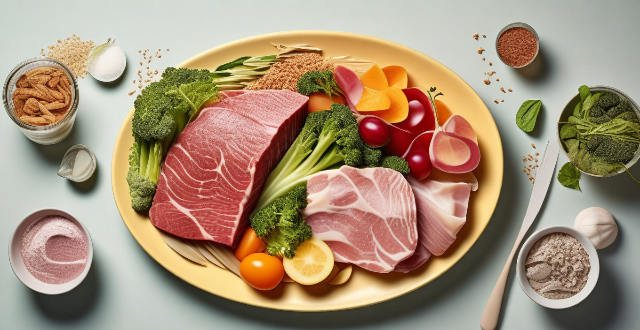Japanese breakfast offers a variety of healthy options that provide essential nutrients and flavors. Miso soup is rich in protein and probiotics, aiding digestion and immunity. Tamagoyaki offers high-quality protein in a low-calorie package. Natto is fermented soybeans with vitamins, minerals, and probiotics for gut health. Onigiri are portable rice balls filled with various ingredients for carbohydrates and protein. Grilled fish provides omega-3 fatty acids for heart and brain health. Japanese pickles are low-calorie, fiber-rich vegetables aiding digestion. Yudofu is boiled tofu high in protein and calcium, suitable for vegans or those watching their weight. Okara, the soy milk residue, is high in fiber and protein, promoting fullness and digestive health. Incorporating these dishes into your breakfast routine can offer a balanced and nutritious start to the day while enjoying Japanese flavors.

Healthy Options for Japanese Breakfast
Japanese breakfast is known for its variety and balance of flavors, textures, and nutrients. Here are some healthy options that you can consider for a satisfying and nutritious start to your day:
1. Miso Soup
- Description: A traditional Japanese soup made with miso paste, dashi broth, and various ingredients such as tofu, seaweed, or vegetables.
- Benefits: High in protein and probiotics, which aid digestion and boost immunity.
2. Tamagoyaki (Japanese Rolled Omelette)
- Description: Thin layers of egg mixed with mirin (sweet rice wine), soy sauce, and sugar, rolled into a neat cylinder shape.
- Benefits: Provides high-quality protein and essential amino acids while being low in calories.
3. Natto (Fermented Soybeans)
- Description: Fermented soybeans with a sticky texture and strong flavor, often served with rice and toppings like chopped onions and seaweed.
- Benefits: Rich in vitamins, minerals, and probiotics, which can improve gut health and reduce inflammation.
4. Onigiri (Rice Balls)
- Description: Triangular or round-shaped balls of rice filled with various ingredients such as salmon, pickled plum, or tuna salad.
- Benefits: Convenient and portable source of carbohydrates and protein, depending on the filling.
5. Grilled Fish
- Description: Fresh fish like mackerel or salmon, grilled to perfection and served with lemon or soy sauce.
- Benefits: High in omega-3 fatty acids, which support heart health and brain function.
6. Japanese Pickles (Tsukemono)
- Description: Sliced vegetables like cucumbers or radishes, pickled in vinegar or brine solutions.
- Benefits: Low in calories and rich in fiber, helping with digestion and weight management.
7. Yudofu (Boiled Tofu)
- Description: Silky tofu boiled in hot water or broth and served with dipping sauces like soy sauce or ponzu.
- Benefits: Low in calories and fat but high in protein and calcium, making it an excellent choice for vegans or those watching their weight.
8. Okara (Soy Milk Residue)
- Description: The leftover pulp from making soy milk, often used in cooking or blended into smoothies.
- Benefits: High in fiber and protein, promoting fullness and supporting digestive health.
By incorporating these dishes into your breakfast routine, you can enjoy the flavors of Japan while reaping the benefits of a balanced and nutritious meal.